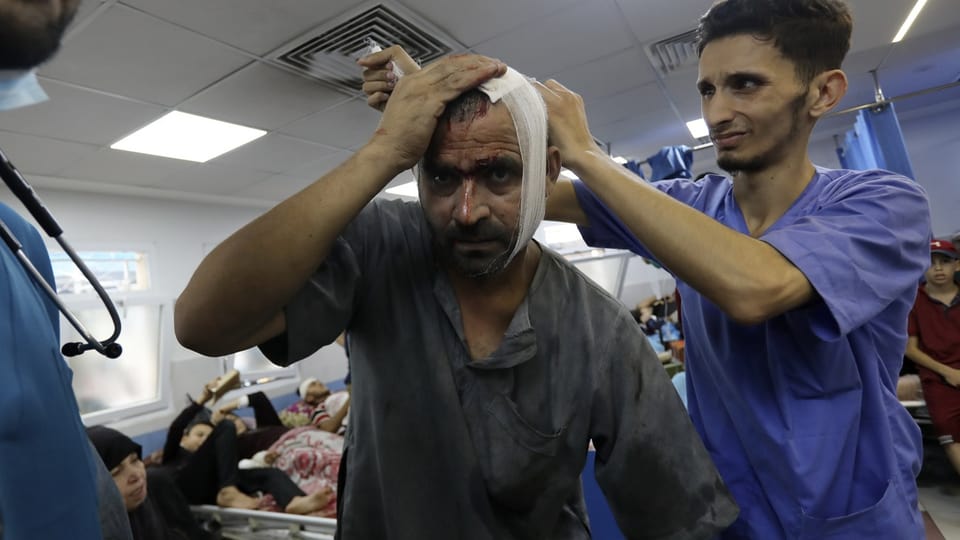Contents
The humanitarian situation in the Gaza Strip is worsening. However, a legal investigation would be difficult, said an expert.
At the Al-Shifa Hospital, the largest clinic in the Gaza Strip, operations had to be stopped at the weekend due to the hostilities. Israel says: There should be a command and operations center for the militant Islamist Hamas under the hospital. Hamas denies it.
How do the acts of war around the hospital relate to international law? A legal investigation is difficult, explains expert Marco Sassoli.
SRF News: What does international law require when dealing with medical facilities?
Marco Sassoli: Medical facilities, i.e. hospitals, must not be attacked. They enjoy so-called special protection. Compared to normal civilian objects, this not only means that one side is not allowed to attack them, but also that the other side is not allowed to use them for military purposes.
Israel must weigh the importance of eliminating this command post compared to the expected number of civilian casualties or wounded and sick.
But that is clearly what is now happening in the Gaza Strip.
The Israelis claim that there is a Hamas headquarters beneath the hospital. If that is the case, then Israel must first warn the hospital and set a deadline. And if the deadline is ignored, the hospital loses special protection and may be attacked. But the principle of proportionality remains applicable. So Israel must weigh the importance of taking out this command post compared to the expected number of civilian casualties or wounded and sick.

Legend:
A man is being treated at Al-Shifa Hospital. (Image from November 5, 2023)
Keystone/Abed Khaled
Are there criteria for this proportionality?
There are states that claim they have criteria. But they want to keep this secret so that the enemy doesn’t know what they have to do to prevent them from attacking. The whole thing is difficult to weigh up and the military benefit is extremely abstract because it is not the result that counts, but rather what the attacker can expect, i.e. how many civilians will be harmed. Additionally, how easy it is to evacuate the wounded must also be taken into account.
In the Al-Shifa example, one would have to know the Israeli plans to assess proportionality.
What is the legal situation with evacuations? Must Israel offer a hand, keep the weapons silent and guarantee safe escape routes?
The problem is this: If the wounded are evacuated and driven through Gaza, they could come to harm accidentally or as a collateral consequence of attacks against Hamas militants. So a responsible medical organization is unlikely to evacuate unless it has a guarantee that the streets through which the evacuation takes place will not be shot at.
Many incidents cannot be independently confirmed. What does that mean for the legal process in the future?
It is always more difficult to judge whether the rules of combat have been followed than the rules known as “Geneva Law”. So about the treatment of people in the power of the enemy; the execution of Israelis by Hamas. Most war crimes convictions concern such abuses rather than combat conduct rules. Simply because it is very difficult to determine who has broken which rules. In the hospital example, one would have to know the Israeli plans to assess proportionality; how important it was to take out this command center. You would also have to know what Hamas did there.
The interview was conducted by Ivan Lieberherr.
